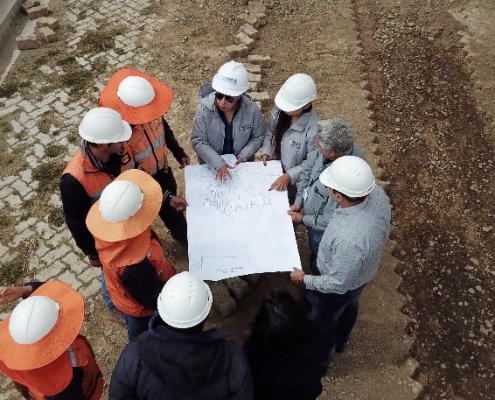Bolivia

Bolivia is one of the countries in the region with the greatest need in terms of water and sanitation and one of the most vulnerable to climate change, which causes cyclical water crises with recurrent droughts and floods. In recent years, water and sanitation have been prioritised in the national political agenda, which is why relevant actions are being developed in this sector. As a result, initiatives for the elaboration of national strategies and plans in which most of the institutions and actors in the sector are participating are the result of this.
Bolivia represents well the evolution of the Water Fund and its reach. The first stage, between 2010 and 2018, focused on actions to expand coverage in rural areas and small or medium-sized cities, always with a focus on integrated water resources management and with an important component of promoting capacity building of public actors.
Currently, the institutional dialogue and the trust generated have made it possible to open additional lines of action to strengthen the sector as a whole and to support the development of public policies. The new programmes are more focused on governance and on guaranteeing the sustainability and quality of services in peri-urban areas. In each line of work, an integrated water resources management approach is provided through the integration of the environmental component, drought management and urban drainage in the planning of the country’s main operators. Consistent with the gap in terms of sanitation needs, improving wastewater treatment is another priority, with support for the implementation of a centre for experimental treatment solutions, the International Centre for Research and Development of Wastewater in the Altiplano – CIIDAR.
Furthermore, it is a good example of how the Fund is committed to promoting the coordination of actors and coordinating large combined operations between different instruments from an initial FCAS grant in order to maximise impact for the benefit of the Bolivian population.
The current portfolio in the country consists of two programmes that combine bilateral donations from Spanish Cooperation and funding from various actors. In both, in addition to the FCAS, the European Union also participates through delegated cooperation programmes administered by Spain.
In the first of the programmes under implementation, the FCAS is providing 5 million euros and the EU, through its LAIF funds, 15 million euros to finance the programme Support to the Water and Sewerage Programme in Urban and Peri-urban Areas, through a blending operation in which the IDB also participates with a credit of 55.5 million euros, and the country itself, with municipal contributions (22.2 million euros) and national contributions (27.7 million euros from the debt swap programme with Spain). This brings the overall operation to 125 million euros.
More information
The overall objective of the operation is to extend and improve access to water and sanitation services to a target population of more than 200,000 women and men in peri-urban and urban areas of Bolivia, ensuring sustainability in terms of operation, quality and continuity of the water and sanitation service. Specific activities covered by EU and FCAS funds focus on the improvement of drinking water supply and sanitation services in selected populations (Cobija city and Chicani-Chinchaya communities), the elaboration of city master plans and pre-investment studies, the implementation of an International Centre for Research and Development in Wastewater Treatment (CIIDAR), the promotion of appropriate stormwater management, creating stronger institutions (training and technical assistance to sector institutions and service operators), the development of tools for the improvement of urban water cycle management and drought management plans in selected cities.
The year 2020 has been marked by the health emergency and by the political context, with the repetition of national elections in October after a year of transitional government. This has resulted in little progress being made in the implementation of actions.
Despite the difficulties, in 2020 progress was made in the preparation of the actions and the contribution agreement was signed with the European Union, which forms part of the second operation, integrated water management in urban areas. In this operation, three million euros from the FCAS together with 15 million euros of EU funds delegated to Spain, form a larger programme that aims to reach 129 million euros, with the participation of the IDB and FONPRODE.
The overall programme aims to achieve the objective of supporting interventions for the extension and improvement of water and sanitation services in urban areas with more than 2,000 inhabitants, with a focus on interventions to mitigate potential water supply crises caused by droughts. The specific objective of the EU-funded action is to improve water resources management in urban areas by increasing and improving access to sanitation services. The objective of the FCAS contribution is the development of tools and instruments to ensure water security and the supply of drinking water to populations.

